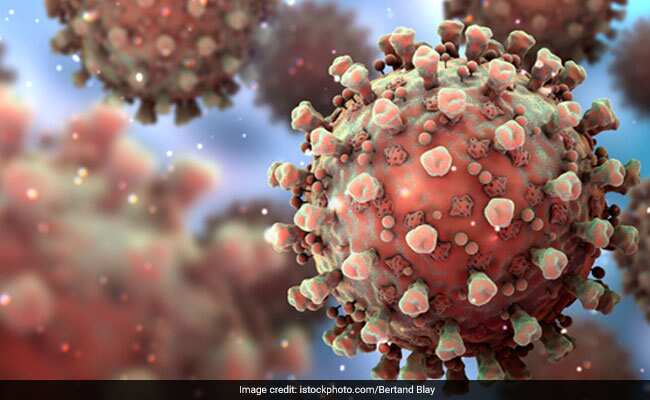COVID-19: How, when and where coronavirus spreads and how the body reacts to it, as explained by expert.

Coronavirus transmission: One can catch coronavirus by coming in close proximity to an infected person
HIGHLIGHTS
- Most people are most infectious at or around time they develop symptoms
- This includes a few days before they actually get sick
- The virus can spread in crowded settings
India is now the second worst country affected by the coronavirus pandemic. And even while the lockdown is slowly easing, taking precautionary measures and being aware of the ways of coronavirus transmission is of utmost importance. In one of its recent IGTV's, the World Health Organization shared information about how SARS-CoV-2 or the novel coronavirus infect us and how the body reacts to it. Dr Maria Van Kerkhove, technical lead for COVID-19 and infectious disease epidemiologist, WHO, explains how this virus moves from one individual to another, when it transmits and where this transmission is taking place.
COVID-19: Know all about how, when and where coronavirus spreads
This is a respiratory virus, and most people who are infected with the SARS-CoV-2 virus tend to have respiratory symptoms, says Dr Kerkhove.
How the virus spreads
- "The virus can be spread by droplets or little particles of liquid that come out of your nose and mouth, when you talk, cough, sing, or are in close proximity to someone else," she explains.
- The virus can be larger or smaller in size. The larger droplets tend to drop more quickly, while the smaller droplets can remain suspended in the air for slightly longer.
- The virus spreads or infects others when an infected person gets those droplets into someone else's eyes, nose or mouth.
- The virus can also spread through contaminated surfaces. "If somebody is infected and they have the virus in these droplets, it can fall onto different surfaces. If someone touches those surfaces and then touch their eyes, nose and mouth, they can infect themselves, if they haven't washed their hands" Dr Kerkhove informs.,
The good news, however, is that if you wash your hands and if you keep physical distance from people, you can prevent that from happening.
Also read: Remote Monitoring For Heart Patients During Coronavirus Pandemic- Why It Is Important
When coronavirus spreads
People who do have symptoms, and those who do not get symptoms, can both spread the virus.
"It appears that most people are most infectious at or around the time they develop symptoms. This includes a few days before they actually get sick or start to feel unwell," Dr Kerkhove informs.

People can spread coronavirus even when they have not developed symptoms
Photo Credit: iStock
Where coronavirus spreads
The setting in which the virus spreads is a combination of the intensity of exposure somebody has, the duration of exposure they may have to an infected individual, and the location of where that is taking place.
"In crowded settings, when people are in close proximity to one another, they spend long periods of time, they're in a room that's crowded, may not have good ventilation... all these are good examples of where transmission can take place readily," she adds.
What role does immunity play?
When an individual is infected with SARS-CoV-2 virus, they develop an immune response, Dr Kerkhove says and adds, "It usually takes a week or two, and sometimes may be longer for the body to develop antibodies. These antibodies protect against reinfection."
How strong that protection is and how long that protection lasts, depending on the type of infection (asymptomatic, mild or severe) one has, is something that is yet to be found. "We do expect people who have been infected with the virus to develop an immune response."
Cases of reinfection
Speaking of cases of reinfection, when somebody develops an immune response, they have these antibodies that last for a certain amount of time. "We need to understand how long those antibodies last, when those antibodies are present, that will protect against reinfection. If those antibodies wane over time, it may be possible that somebody could be reinfected again."
Also read: Coronavirus Prevention: 6 Essential Qualities That Are Important For An Effective Face Mask
(Dr Maria Van Kerkhove, technical lead for COVID-19 and infectious disease epidemiologist, WHO)
Disclaimer: This content including advice provides generic information only. It is in no way a substitute for qualified medical opinion. Always consult a specialist or your own doctor for more information. NDTV does not claim responsibility for this information.
DoctorNDTV is the one stop site for all your health needs providing the most credible health information, health news and tips with expert advice on healthy living, diet plans, informative videos etc. You can get the most relevant and accurate info you need about health problems like diabetes, cancer, pregnancy, HIV and AIDS, weight loss and many other lifestyle diseases. We have a panel of over 350 experts who help us develop content by giving their valuable inputs and bringing to us the latest in the world of healthcare.














